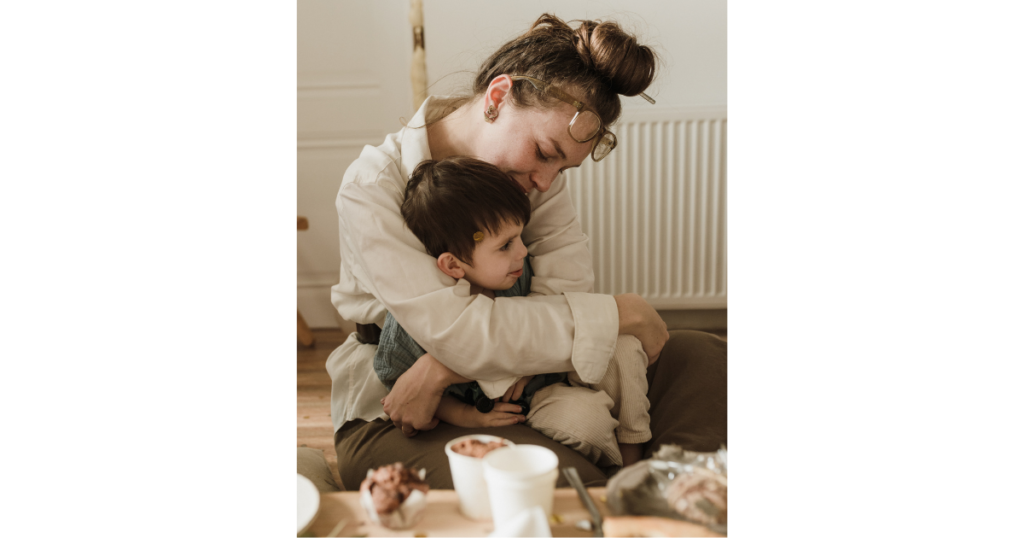When it comes to unplanned pregnancy, most people tend to think they have to choose between one of two options: parenting or abortion. Many people feel overwhelmed by both of these choices. Parenting is a lifelong journey, and abortion can be an emotionally intense experience. What if you don’t feel peace about either of these?
When deciding how to proceed with an unexpected pregnancy, part of making an informed decision involves knowing all your options, and those options do include adoption. Oftentimes, people don’t consider adoption due to misconceptions about how it works. Some people think it means putting your child into foster care. Others say they can’t imagine having a kid “out there” in the world somewhere who doesn’t know them.
Whether or not you initially feel open to the idea of adoption, you should be informed about all that is available to you. Being fully informed will help you make a decision that’s best for you when the time comes.
Addressing Common Adoption Myths
Before we start working through what adoption is, let’s clarify what it is not. Below we address two common misconceptions about adoption.
Myth 1: I don’t want to put my child in foster care.
Contrary to what many people think, releasing a child for adoption is not the same as putting them in foster care. Adoption agencies work with birth mothers to place children directly into loving families, often chosen by the birth mother herself. Organizations like Lifetime Adoption use the following adoption process:
- Learn about your adoption choices
- Select potential adoptive parents from a list of screened and qualified families
- Decide the type of contact you want with the child or adoptive family after the adoption
- Work with the agency to create your adoption plan
- Understand what free counseling, support, and scholarship opportunities are available to you after the adoption takes place
All that to say–you have more control over the adoption process than you think! You can work with an agency to choose a family that you feel is a good fit for your child.
Myth 2: I couldn’t live knowing that I have a kid out there.
In the past, most adoptions that took place were what are called closed adoptions. This meant that the birth mother would not know where the child was placed or have any contact with the child throughout their life. However, most adoptions today are called open adoptions. In an open adoption, birth parents can remain connected to the adoptive family and the child throughout their life. The child gets to know their family history, health history, and even have direct contact with their birth parents.
This arrangement may look slightly different for everyone. For one family, it might mean they may celebrate holidays together or have regular visits. For others, it might be a relationship primarily through text messages or phone calls. Everyone is different, but the point is, choosing to move forward with adoption doesn’t have to mean your kid is just “out there somewhere.” Families are all built in different ways, and a family doesn’t have to be “traditional” to still be full of love.
The Benefits of Adoption
For birth parents facing uncertain circumstances, choosing adoption can be an act of profound love and sacrifice, prioritizing their child’s future well-being. It provides a pathway to a life filled with potential and care, which the birth parents may not be in a position to offer at the time. Society as a whole is strengthened by these acts of care and connection. While there are many benefits to choosing adoption, let’s list just a few.
A Fresh Start for Mom
An unplanned pregnancy can rattle anyone, no matter their circumstances. For someone who wasn’t ready to have a baby, adoption offers a fresh start. Birth parents can continue to pursue their educational goals and even access additional scholarship opportunities through their adoption agency. Careers can continue forward as planned. Adoption offers birth mothers a fresh start, even after an unexpected pregnancy.
New Relationships & Loving Families
It’s a beautiful thing how different lives and stories overlap in this life. Adoption offers birth moms the opportunity to connect with a whole new family, and often the bond grows strong between them. In an open adoption, the child gets to receive love from both adoptive and biological parents–double the love! While the choice of adoption is often made in sacrifice, it can lead to so much joy and love.
Opportunities for the Child
Many times, birth parents release a baby for adoption because they know they can’t offer their child all the resources and opportunities they want to give them. It’s a loving act of sacrifice. Studies have shown that adoptive parents are less likely to live below the poverty line and more likely to emphasize the importance of education (1). Often, adoption allows a child access to new opportunities beyond what they may have otherwise received.
Social Impact: Beyond the Adoptive Home
Adoption extends its influence far beyond individual families. The act of adopting positively contributes to the overall fabric of society by promoting social responsibility and reinforcing the importance of nurturing vulnerable members of our community. It offers those facing unplanned pregnancy an option to see their child thrive, even if it’s somewhere outside their own home. As a community, we should celebrate these transforming acts of compassion, as they fundamentally enrich the lives of everyone involved.

The Challenges in Adoption
While adoption has many benefits, it’s only fair to acknowledge what might make adoption challenging too. If you are considering adoption, understanding the challenges will help you determine if you feel up to them.
Navigating Emotional Complexity
Adoption is not an emotionally easy decision for many birth moms. Some experience a sense of grief and loss. You carried the baby all the way to term, only to release them to another family. Understanding that it is a very difficult decision, most states require a period of time after the child is born for the birth mother to move forward with the adoption. While it may be the right decision for you, it’s important to seek the emotional support that you need at that time. Many agencies offer post-adoption support to help you navigate these feelings.
Relationships are Complicated
Whatever kind of adoption you choose, you are dealing with people. And people, as we know, are complicated. Relationships are hard, sometimes messy, and miscommunications happen. In an open adoption, it’s possible to misunderstand expectations on frequency or method of contact. It can be hard to navigate conflicts that come up in familial relationships. Sometimes birth parents and adoptive families are from different cultural backgrounds, which can lead to unintended misunderstandings. Even so, building healthy relationships is a lifelong process, and it takes mutual effort. Conflict can serve to strengthen bonds once it has been overcome.
Real-Life Adoption Narratives
Adoption may not be an easy choice, but it is a loving one. If you want to get a real-life sense of what adoption may look like, the best thing to do is listen to true stories of how it has been for people like you!
Brave Love is a pro-adoption movement that acknowledges birth moms for their decision by sharing their true stories. They have videos from birth parents, adoptees, and adoptive parents so you can hear many different perspectives.
Understanding Safe Haven Laws
Safe Haven Laws provide a safe option for legally surrendering infants up to 7 days old without facing prosecution. If you have gone through pregnancy and delivery and now suddenly feel unable to care for this child, this option remains available to you.
The Safe Haven Act of Massachusetts (2004) ensures that parents can safely relinquish custody of infants, typically up to a certain age, at designated locations without facing criminal charges, as long as the child has not been harmed.
The goal of these laws is to prevent unsafe abandonment and to guarantee that the infant receives immediate care and protection. Under Massachusetts law, for instance, a baby can be left at a hospital, police station, or staffed fire station without repercussions. By creating a safe avenue, these legislations offer a last-resort solution for parents under extreme distress.

The Basics of Safe Haven in Massachusetts
In Massachusetts, the Safe Haven Act allows desperate parents a legal and anonymous way to surrender their newborn.
- Anonymity: Identifier for surrendering parents is not required.
- Age limit: Newborns up to 7 days old can be surrendered.
- Safe locations: Hospitals, police stations, and staffed fire stations are designated Safe Havens.
- Protection: Parents are shielded from abandonment charges.
- Emergencies Only: This act is a last-resort option for parents in crisis.
It’s designed to protect both the wellbeing of the newborn and the rights of the parents. The act emphasizes a compassionate approach to an extremely difficult situation, ensuring infants receive care immediately.
Your Pregnancy Options
If you would like to learn more about all possible pregnancy outcomes, schedule a consultation today. Your decision is yours to make, and we are here to support you. We offer information on all your options so that you can make an informed and empowered decision.




